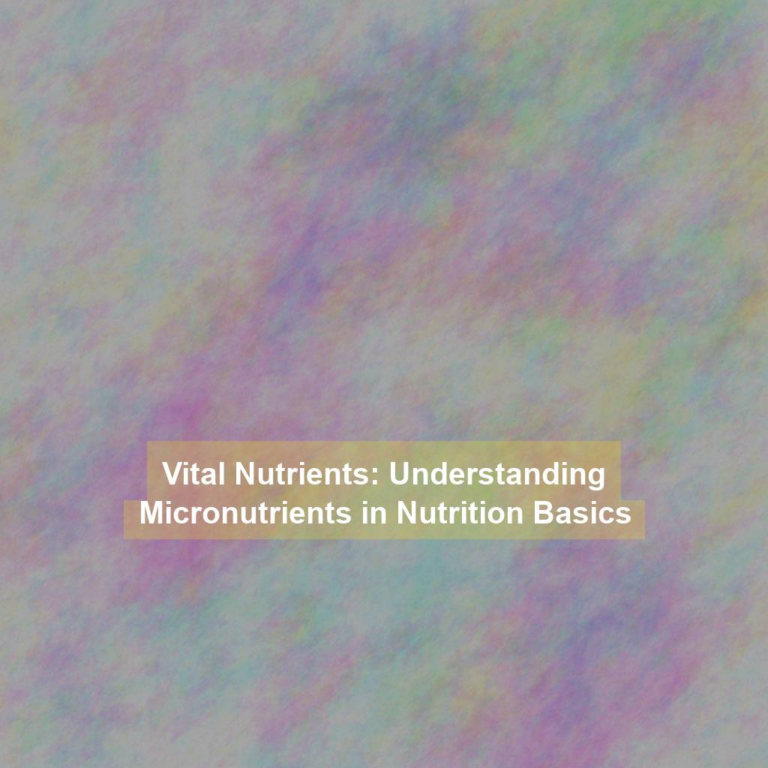You probably don’t give much thought to the tiny minerals that play a massive role in your overall well-being. But the truth is, micronutrient minerals are essential for keeping your body functioning at its best.
Iron, zinc, magnesium, and other micronutrients are not just mere dietary components; they are key players in vital bodily functions. As you go about your day, these silent heroes are working tirelessly behind the scenes to keep you feeling and performing your best.
But what exactly do these minerals do, and why are they so crucial? Let’s uncover the profound impact of micronutrient minerals on your health and well-being.
Importance of Micronutrient Minerals
You need micronutrient minerals for optimal health and well-being. These essential elements play a crucial role in various bodily functions. For instance, iron is necessary for transporting oxygen in your blood and for overall energy production. Without enough iron, you may feel fatigued and weak.
Calcium is vital for maintaining strong bones and teeth, while also supporting muscle function and nerve transmission. Magnesium is another micronutrient mineral that’s essential for hundreds of biochemical reactions in your body, including regulating muscle and nerve function, blood sugar levels, and blood pressure.
Zinc is important for immune function, wound healing, and DNA synthesis. Selenium acts as an antioxidant, helping to protect your cells from damage. Furthermore, copper is essential for forming red blood cells and maintaining a healthy immune system.
These micronutrient minerals aren’t only critical for your physical health but also for supporting your mental well-being. Ensuring you have an adequate intake of these minerals through a balanced diet is essential for overall health and vitality.
Functions and Benefits of Iron
Iron plays a crucial role in transporting oxygen in your blood and is essential for overall energy production. Without enough iron, your body can’t produce enough hemoglobin, a substance in red blood cells that enables them to carry oxygen to your body’s tissues. This can lead to iron deficiency anemia, causing fatigue, weakness, and decreased immune function.
Iron also supports your metabolism by helping your body produce adenosine triphosphate (ATP), the primary energy currency of your cells. Additionally, iron is necessary for the synthesis of neurotransmitters such as dopamine, norepinephrine, and serotonin, which are crucial for brain function and mood regulation.
Furthermore, iron is involved in the production of collagen, a protein that supports the structure of your skin, hair, and nails. Adequate iron levels are especially important during periods of rapid growth such as childhood, adolescence, and pregnancy. Ensuring you get enough iron through a balanced diet can help maintain your overall well-being and energy levels.
Zinc: A Vital Micronutrient
Zinc is an essential micronutrient that plays a vital role in various physiological processes within the body. It’s crucial for immune function, cell division, wound healing, and the breakdown of carbohydrates. Ensuring an adequate intake of zinc is important for supporting your overall well-being. This micronutrient is also involved in the production of proteins and DNA, making it essential for growth and development.
In addition to its role in physiological processes, zinc is an important element for maintaining sensory functions, such as taste and smell. It acts as an antioxidant, helping to protect cells from oxidative stress and supporting healthy aging.
Furthermore, zinc is known to play a key role in reproductive health, particularly in males. It’s essential for the production of testosterone and sperm. Ensuring that you have enough zinc in your diet is crucial for supporting optimal reproductive function.
To meet your body’s zinc needs, include zinc-rich foods in your diet, such as oysters, red meat, poultry, beans, nuts, and dairy products. If you have specific concerns about your zinc intake, consider consulting with a healthcare professional to determine the best approach for meeting your micronutrient needs.
Magnesium and Its Role in Well-Being
Indispensable for various physiological functions, magnesium is a crucial micronutrient that plays a vital role in supporting overall well-being. Your body relies on magnesium for energy production, muscle and nerve function, and the synthesis of protein and DNA. It also contributes to maintaining normal heart rhythm, blood sugar levels, and blood pressure. Furthermore, magnesium is essential for bone health, as it helps regulate calcium and vitamin D levels in the body. In addition to its physiological functions, magnesium has been linked to promoting relaxation and aiding in stress reduction.
Ensuring an adequate intake of magnesium is important for your well-being. Incorporating magnesium-rich foods such as leafy green vegetables, nuts, seeds, and whole grains into your diet can help meet your daily magnesium needs. If dietary sources are insufficient, magnesium supplements can be considered, especially for individuals with specific health conditions or dietary restrictions. However, it’s important to consult a healthcare professional before starting any supplementation.
Consequences of Micronutrient Deficiencies
Neglecting the intake of essential micronutrient minerals can lead to a range of adverse health effects, impacting various physiological functions and overall well-being.
For instance, insufficient intake of iron can lead to anemia, resulting in fatigue, weakness, and impaired cognitive function.
Inadequate calcium intake can weaken bone density, increasing the risk of fractures and osteoporosis.
A deficiency in zinc may weaken the immune system, making you more susceptible to infections and delayed wound healing.
Insufficient intake of iodine can lead to thyroid dysfunction, causing fatigue, weight gain, and cognitive impairments.
Additionally, low levels of selenium can compromise antioxidant activity, increasing the risk of cellular damage and chronic diseases.
Furthermore, inadequate intake of copper may lead to anemia, bone abnormalities, and impaired growth in children.
Conclusion
In conclusion, micronutrient minerals play a crucial role in maintaining overall well-being. Iron is essential for oxygen transport. Zinc is vital for immune function. Magnesium supports muscle and nerve function.
Deficiencies in these micronutrients can lead to serious health consequences. Therefore, it’s important to ensure that you’re getting adequate amounts of these micronutrient minerals in your diet to support your overall health and well-being.







